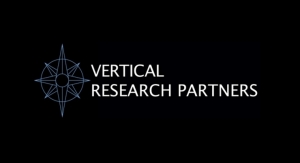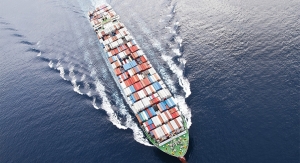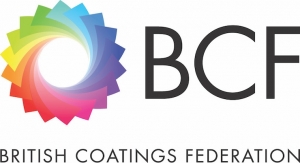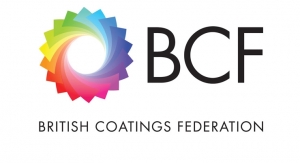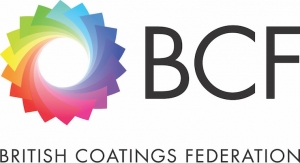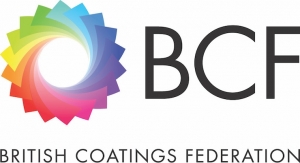Sean Milmo , European Correspondent08.10.18
The UK’s departure from the European Union, which is expected to take place in March 2019, will pose big problems not only for the country’s sector but also for much of Europe’s coatings industry as well.
Brexit could dismantle a network of supply chains across Europe which have taken many years to establish and in which UK coatings producers and raw material suppliers play a key role.
Chemicals in coatings formulations and the formulations themselves may currently cross the borders of the EU’s 28 member states, including the UK, several times. Even in the final stages of production, coatings products are transported across frontiers for blending, packaging and other activities.
While the UK remains part of the EU, shipments in and out the country are done without the need for imposition of tariffs or customs inspections to check compliance with regulatory and other non-tariff requirements because the EU operates as a barrier-free single market.
Since UK voters backed withdrawal from the EU in a referendum in June 2016, the UK government has been intent on combining Brexit with departure from the single market. This has raised fears in the UK and the rest of the EU chemicals industry for which coatings are a major downstream customer, as well as in the coatings sector itself, that existing UK-EU supply chains will disappear. The just-in-time (JIT) nature of the chains will no longer be achievable because of the likelihood of delays at customs posts.
Now, however, the UK government has changed its mind by deciding that the country will effectively remain in the EU single market for manufactured goods while moving outside it for services. Its decision on the single market was included in a government White Paper on its negotiating position on the Brexit withdrawal, published in July.
“I hope the two-year uncertainty we have had since the referendum is now at an end,” said Steve Elliott, chief executive of the UK Chemical Industries Association (CIA).
The sense of relief was reflected in comments by the British Coatings Federation (BCF) which has been working closely on Brexit issues with CEPE, the European trade association representing coatings producers across the EU.
“The White Paper is a huge step forward to achieving the frictionless and tariff-free trade that the coatings industry is pushing for from both sides of the Channel (between England and mainland Europe),” said Tom Bowtell, BCF chief executive.
The UK government’s White Paper was also welcomed by the European Chemical Industry Council (Cefic), the association representing the whole European chemicals sector, including specialty producers like coatings manufacturers. “We want to see a seamless flow of goods across the Channel,” Cefic said in a statement released after the publication of the White Paper. “It is in all our interests.”
The UK government’s compromise on the movement of manufactured products between the UK and EU after Brexit is based on a proposal that there should be a free trade area for goods.
“This free trade area would protect the uniquely integrated supply chains and just-in-time processes that have developed across the UK and the EU over the last 40 years,” the White Paper. “It would avoid the need for customs and regulatory checks at the border and mean that businesses would not need to complete costly customs declarations.”
Within the free trade area on goods all tariffs would be eliminated as well as quotas and rules-of-origin requirements, the UK government proposes.
On the issue of non-tariff regulatory standards on the quality and safety of goods, the UK puts forward the idea of a “common rulebook,” which would cover all rules checked for compliance by customs officials at border posts. Under a UK-EU agreement on a free trade area for goods, the UK would accept regulations covered by the common rulebook which effectively would comprise EU regulations already accepted by the UK under its current European Union membership.
But the UK is also suggesting that it would accept updating of existing EU regulations – such as REACH, the key piece of legislation on chemicals safety – as long as it is able to participate in the EU agencies and technical committees that have “a role in designing and implementing rules that form part of the common rulebook,” according to the White Paper.
The UK is now seeking involvement “as an active participant albeit without voting rights” in the Helsinki-based European Chemicals Agency (ECHA). It is the key agency for producers of chemicals and coatings and ink because it administers REACH and other EU chemical regulations.
Since any chemical – including coatings ingredients like pigments – must be registered under REACH with safety dossiers to remain on the EU market, the UK wants any REACH registration for UK produced or imported chemicals to remain valid in the European Union after Brexit. The White Paper even proposes that UK businesses could continue to be able to register new chemical substances directly with ECHA after Brexit.
“I am especially pleased that ECHA has been again formally recognized (by the UK government),” said Elliott. “This is an encouraging step forward for manufacturing.”
However, the optimism generated by the UK White Paper was soon disappearing in the midst of skepticism from the EU negotiators on a Brexit withdrawal agreement. Michel Barnier, the Brexit negotiator for the European Commission, the EU executive, cast doubts on whether the White Paper proposals were “workable.”
This raised fears among manufacturers in the UK and the rest of the EU that instead of agreeing on a compromise for which the UK White Paper could have provided a foundation there would be no UK-EU withdrawal deal on Brexit. The basic aim of the negotiations is that everything has to be agreed before anything is agreed.
A full agreement needs to be accomplished by around October this year to allow enough time for EU member state governments and parliaments to ratify the deal before the deadline of March 2019 when Brexit is due to take place.
“No deal will result in the UK having to work under a different chemicals regulatory framework to the EU, meaning no access to the (EU) single market,” warned Bowtell. “Tariffs would also be imposed on the coatings industry with World Trade Organization (WTO) tariffs on paints and coatings of six percent. Moreover, customs checks would result in delays at the UK border, harming the coatings industry and leading to significant increases in inventory.”
Brexit could dismantle a network of supply chains across Europe which have taken many years to establish and in which UK coatings producers and raw material suppliers play a key role.
Chemicals in coatings formulations and the formulations themselves may currently cross the borders of the EU’s 28 member states, including the UK, several times. Even in the final stages of production, coatings products are transported across frontiers for blending, packaging and other activities.
While the UK remains part of the EU, shipments in and out the country are done without the need for imposition of tariffs or customs inspections to check compliance with regulatory and other non-tariff requirements because the EU operates as a barrier-free single market.
Since UK voters backed withdrawal from the EU in a referendum in June 2016, the UK government has been intent on combining Brexit with departure from the single market. This has raised fears in the UK and the rest of the EU chemicals industry for which coatings are a major downstream customer, as well as in the coatings sector itself, that existing UK-EU supply chains will disappear. The just-in-time (JIT) nature of the chains will no longer be achievable because of the likelihood of delays at customs posts.
Now, however, the UK government has changed its mind by deciding that the country will effectively remain in the EU single market for manufactured goods while moving outside it for services. Its decision on the single market was included in a government White Paper on its negotiating position on the Brexit withdrawal, published in July.
“I hope the two-year uncertainty we have had since the referendum is now at an end,” said Steve Elliott, chief executive of the UK Chemical Industries Association (CIA).
The sense of relief was reflected in comments by the British Coatings Federation (BCF) which has been working closely on Brexit issues with CEPE, the European trade association representing coatings producers across the EU.
“The White Paper is a huge step forward to achieving the frictionless and tariff-free trade that the coatings industry is pushing for from both sides of the Channel (between England and mainland Europe),” said Tom Bowtell, BCF chief executive.
The UK government’s White Paper was also welcomed by the European Chemical Industry Council (Cefic), the association representing the whole European chemicals sector, including specialty producers like coatings manufacturers. “We want to see a seamless flow of goods across the Channel,” Cefic said in a statement released after the publication of the White Paper. “It is in all our interests.”
The UK government’s compromise on the movement of manufactured products between the UK and EU after Brexit is based on a proposal that there should be a free trade area for goods.
“This free trade area would protect the uniquely integrated supply chains and just-in-time processes that have developed across the UK and the EU over the last 40 years,” the White Paper. “It would avoid the need for customs and regulatory checks at the border and mean that businesses would not need to complete costly customs declarations.”
Within the free trade area on goods all tariffs would be eliminated as well as quotas and rules-of-origin requirements, the UK government proposes.
On the issue of non-tariff regulatory standards on the quality and safety of goods, the UK puts forward the idea of a “common rulebook,” which would cover all rules checked for compliance by customs officials at border posts. Under a UK-EU agreement on a free trade area for goods, the UK would accept regulations covered by the common rulebook which effectively would comprise EU regulations already accepted by the UK under its current European Union membership.
But the UK is also suggesting that it would accept updating of existing EU regulations – such as REACH, the key piece of legislation on chemicals safety – as long as it is able to participate in the EU agencies and technical committees that have “a role in designing and implementing rules that form part of the common rulebook,” according to the White Paper.
The UK is now seeking involvement “as an active participant albeit without voting rights” in the Helsinki-based European Chemicals Agency (ECHA). It is the key agency for producers of chemicals and coatings and ink because it administers REACH and other EU chemical regulations.
Since any chemical – including coatings ingredients like pigments – must be registered under REACH with safety dossiers to remain on the EU market, the UK wants any REACH registration for UK produced or imported chemicals to remain valid in the European Union after Brexit. The White Paper even proposes that UK businesses could continue to be able to register new chemical substances directly with ECHA after Brexit.
“I am especially pleased that ECHA has been again formally recognized (by the UK government),” said Elliott. “This is an encouraging step forward for manufacturing.”
However, the optimism generated by the UK White Paper was soon disappearing in the midst of skepticism from the EU negotiators on a Brexit withdrawal agreement. Michel Barnier, the Brexit negotiator for the European Commission, the EU executive, cast doubts on whether the White Paper proposals were “workable.”
This raised fears among manufacturers in the UK and the rest of the EU that instead of agreeing on a compromise for which the UK White Paper could have provided a foundation there would be no UK-EU withdrawal deal on Brexit. The basic aim of the negotiations is that everything has to be agreed before anything is agreed.
A full agreement needs to be accomplished by around October this year to allow enough time for EU member state governments and parliaments to ratify the deal before the deadline of March 2019 when Brexit is due to take place.
“No deal will result in the UK having to work under a different chemicals regulatory framework to the EU, meaning no access to the (EU) single market,” warned Bowtell. “Tariffs would also be imposed on the coatings industry with World Trade Organization (WTO) tariffs on paints and coatings of six percent. Moreover, customs checks would result in delays at the UK border, harming the coatings industry and leading to significant increases in inventory.”




